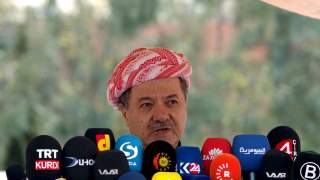Why Some Countries See Kurdistan's Battle for Independence as a Threat
The Kurdish region wants to think in the long-term, but even the short-term looks difficult.
In Washington Rep. Trent Franks has sponsored a resolution supporting Kurdish rights to choose independence. Sen. Chuck Schumer has also spoken in support of the Kurdish referendum after the results came in. U.S. opposition to the referendum may have emboldened Abadi’s response, but now the United States would like Baghdad to temper its reaction.
The next steps will depend largely on how long Turkey and Baghdad attempt to put sanctions on the Kurdish region. The Ministry of Foreign Affairs of the Russian Federation released a statement on September 27 supporting a unified Iraq while providing the Kurdish region hope. “Moscow respects the national aspirations of the Kurds. We believe that all disputes that exist between the Iraqi federal government and the government of the Kurdish Autonomous Region can and should be resolved through constructive and respectful dialogue.” This dovetails with the message from Erbil. “I hope the threats will not translate into reality because everyone will lose. . . putting embargo on people will not weaken our people. We hope Iraq does not translate threats into action,” KRG prime minister Nechirvan Barzani said at a press conference. The next weeks are expected to be a difficult time, but Kurdish politicians and local people are generally resolute. They think that waiting on independence forever will only lead their enemies to grow stronger. They hope that their friends abroad will come around to supporting the vast majority who want independence and facilitate dialogue with Baghdad that leads in that direction within the next year.
Seth J. Frantzman is a Jerusalem-based journalist who holds a PhD from The Hebrew University of Jerusalem. He is a research associate at the Rubin Center for Research in International Affairs at the Interdisciplinary Center (IDC) Herzliya.
RECOMMENDED:
What a War Between NATO and Russia Would Look Like.
What a War Between America and China Would Look Like.
What a War Between China and Japan Would Look Like.

